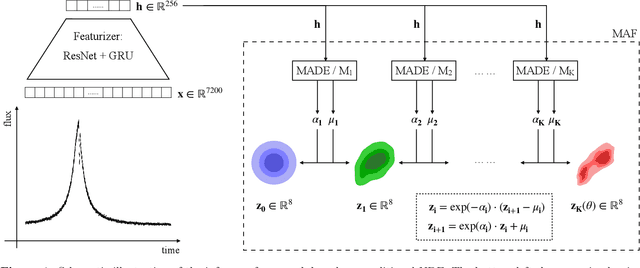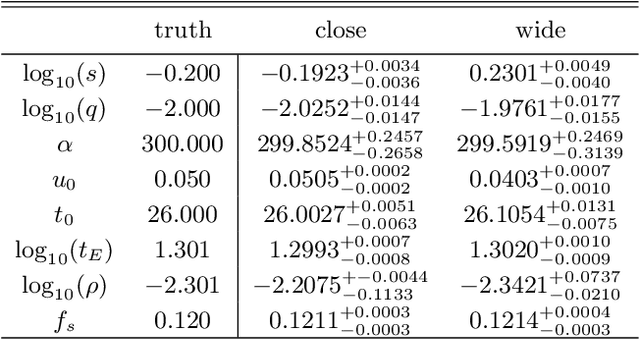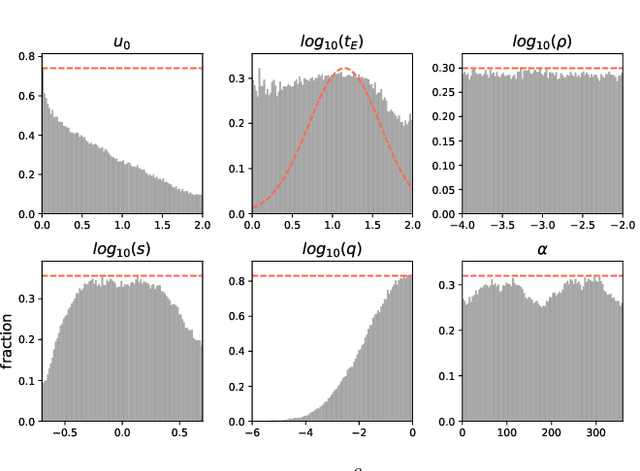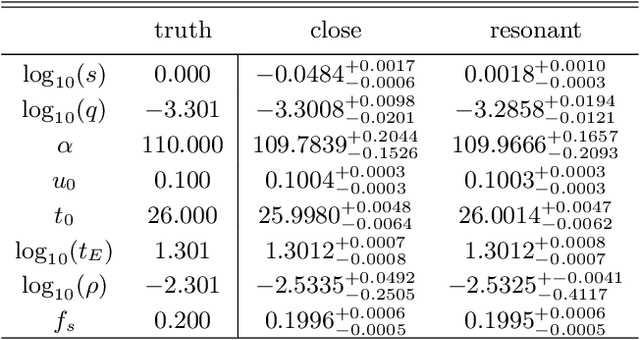Real-Time Likelihood-Free Inference of Roman Binary Microlensing Events with Amortized Neural Posterior Estimation
Paper and Code
Feb 17, 2021



Fast and automated inference of binary-lens, single-source (2L1S) microlensing events with sampling-based Bayesian algorithms (e.g., Markov Chain Monte Carlo; MCMC) is challenged on two fronts: high computational cost of likelihood evaluations with microlensing simulation codes, and a pathological parameter space where the negative-log-likelihood surface can contain a multitude of local minima that are narrow and deep. Analysis of 2L1S events usually involves grid searches over some parameters to locate approximate solutions as a prerequisite to posterior sampling, an expensive process that often requires human-in-the-loop domain expertise. As the next-generation, space-based microlensing survey with the Roman Space Telescope is expected to yield thousands of binary microlensing events, a new fast and automated method is desirable. Here, we present a likelihood-free inference (LFI) approach named amortized neural posterior estimation, where a neural density estimator (NDE) learns a surrogate posterior $\hat{p}(\theta|x)$ as an observation-parametrized conditional probability distribution, from pre-computed simulations over the full prior space. Trained on 291,012 simulated Roman-like 2L1S simulations, the NDE produces accurate and precise posteriors within seconds for any observation within the prior support without requiring a domain expert in the loop, thus allowing for real-time and automated inference. We show that the NDE also captures expected posterior degeneracies. The NDE posterior could then be refined into the exact posterior with a downstream MCMC sampler with minimal burn-in steps.
 Add to Chrome
Add to Chrome Add to Firefox
Add to Firefox Add to Edge
Add to Edge